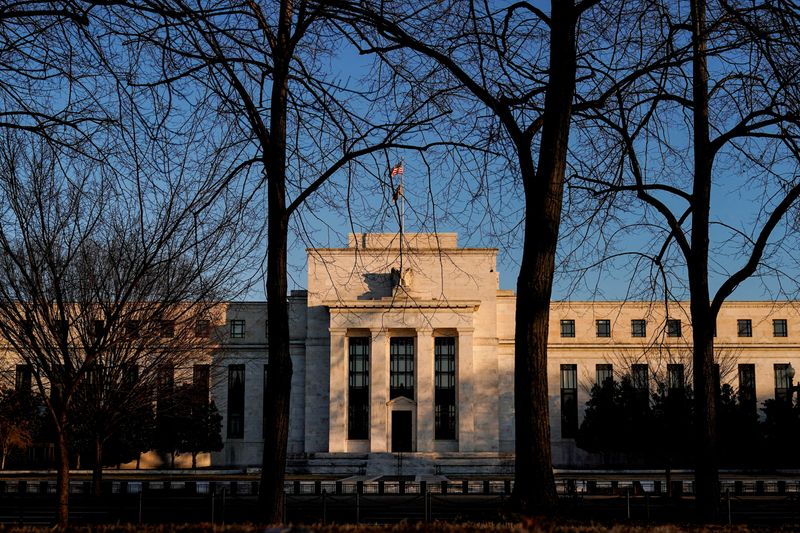NEW YORK (Reuters) - Annual U.S. inflation slowed further below 3% in November and underlying price pressures continued to abate, which could cement financial market expectations for an interest rate cut next March.
The personal consumption expenditures (PCE) price index, fell 0.1% last month after being unchanged in October, the Commerce Department reported on Friday. Year on year, the PCE index increased 2.6% after rising 2.9% in October. October was the first since March 2021 that the annual PCE price index was below 3%.
Excluding the volatile food and energy components, the PCE price index rose 0.1% in November, matching December's gain. The so-called core PCE price index advanced 3.2% year-on-year in November, the smallest rise since April 2021, after increasing 3.4% in October.
MARKET REACTION:
STOCKS: U.S. stock futures added to a small gain and were up 0.11% BONDS: U.S. Treasury 10-year yield rose to 3.88% after the dataFOREX: The dollar index briefly cut a small loss and was last down 0.16%
COMMENTS:
CHRIS ZACCARELLI, CHIEF INVESTMENT OFFICER, INDEPENDENT ADVISOR ALLIANCE, CHARLOTTE, NORTH CAROLINA (email)
"We entered 2023 worried about inflation and how many more times the Fed was going to raise rates, but we are ending 2023 surprised at how low inflation has come down – especially as unemployment has remained so low – and are wondering how many times the Fed will cut"
"We think the 6 rate cuts that the market has priced in for next year is too high, given the current state of the economy, with GDP growth at high levels and the unemployment rate at very low levels, however, if inflation rapidly goes back to target then it’s possible that both the stock market and the Fed Funds market are correct."
"Most of 2023 has been about the resilient consumer and waiting for a recession which never came, but we think 2024 is going to be much more about inflation going back to target in a sustainable way or inflation getting “stuck” and forcing the Fed to cut much less than the market expects (if they cut at all) and that latter scenario would be a big shock to equity markets and dent the current melt up."
PETER CARDILLO, CHIEF MARKET ECONOMIST, SPARTAN CAPITAL SECURITIES, NEW YORK
“The inflation news is good, it continues to point in the right direction and if the numbers continue along this path there’s a good possibility that the Fed will cut rates sooner than expected.”
“Personal income was strong, spending was on the weak side.”
“And don’t forget (new orders for) durable goods were up 5.4%.”
“The economy is showing weakness, and it will likely result in earlier than expected rate cuts by the Fed.”

“Today we’re going to have light volume so we might see larger than usual gyrations. But I think momentum is still on the positive side.”
BRIAN JACOBSEN, CHIEF ECONOMIST, ANNEX WEALTH MANAGEMENT, MENOMONEE FALLS, WISCONSIN“Higher income, lower spending, and lower inflation. What’s really not to like? Core inflation has been running right at the Fed’s target for the past three months, so the Powell Pivot may have seemed abrupt, but it’s justified. The Fed doesn’t have to move its inflation target to declare victory, it just has to let things play out naturally.”